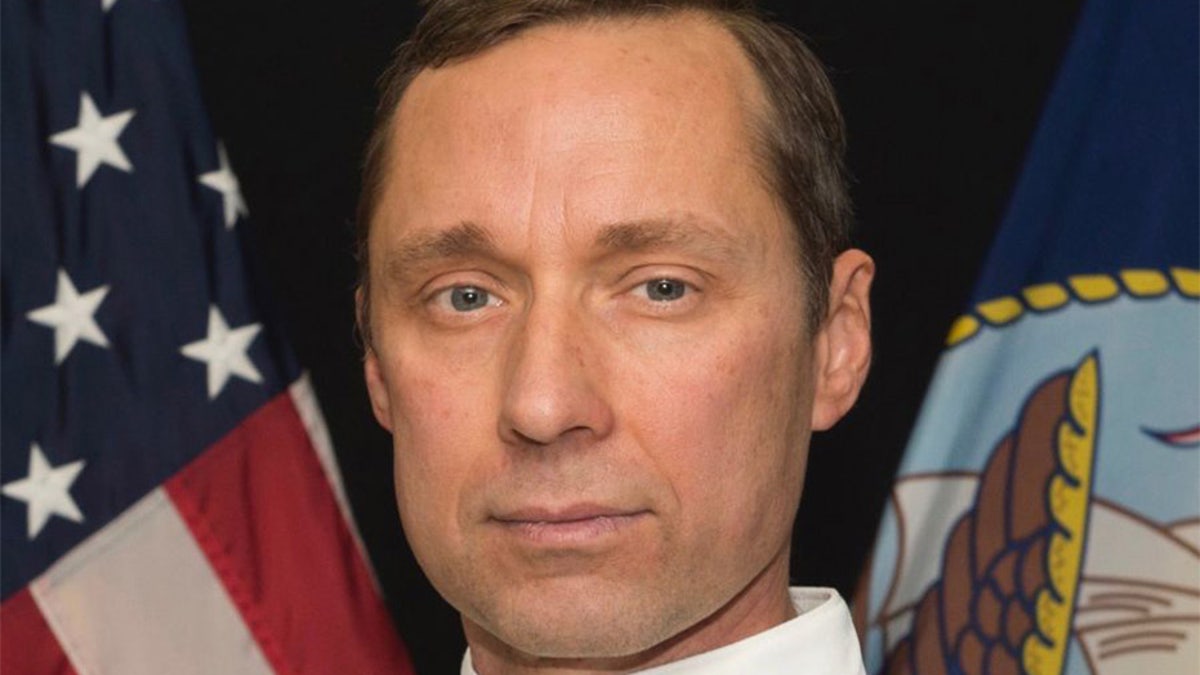
Master Chief Special Warfare Operator Britt K. Slabinski, a former U.S. Navy SEAL, will be awarded the Medal of Honor. (U.S. Navy)
A Navy SEAL who led a mission to rescue a stranded teammate while engaging in a firefight “against the tenacious and more heavily armed enemy forces” on a snowy mountaintop in Afghanistan is set to be awarded the Medal of Honor.
The White House announced Monday that President Trump will present the award to Master Chief Special Warfare Operator Britt K. Slabinski on May 24.
On March 4, 2002, the now-retired SEAL was in charge of a reconnaissance team that was assigned to a snow-covered 10,000-foot peak in the Middle Eastern country to support a coalition offensive against Al Qaeda in the valley below, the White House said.
But as members of Slabinski’s team was setting up their position, they came under fire from enemy fighters hidden in the area. One of his teammates fell out of a helicopter, which ended up crash landing in the valley.
“Then-Senior Chief Slabinski boldly rallied his remaining team and organized supporting assets for a daring assault back to the mountain peak in an attempt to rescue their stranded teammate,” the White House said. “Later, after a second enemy-opposed insertion, then-Senior Chief Slabinski led his six-man joint team up a snow-covered hill, in a frontal assault against two bunkers under withering enemy fire from three directions.”
The White House, in a statement, added that Slabinski “repeatedly exposed himself to enemy fire as he engaged in a pitched, close-quarters firefight against the tenacious and more heavily armed enemy forces.”
Increasing enemy fire and casualties eventually forced members of the team to retreat.
A New York Times account of the battle said Slabinski’s teammate who fell out of the helicopter was, unbeknownst to them, already dead and the enemy had tried to decapitate him.
John Chapman, an Air Force technical sergeant, was wounded in the assault and later died.
That death has been surrounded by controversy as the Air Force has claimed that Chapman was still alive, but unconscious, when Slabinski made the call to retreat. Air Force officials believe Chapman later killed two Al Qaeda fighters on the mountaintop – including one in hand-to-hand combat, before being struck by gunfire.
Slabinski had told the New York Times that he had crawled on top of Chapman amid the gunfire and didn't detect a response.
“I’m trying to direct what everybody’s got going on, trying to see what’s going on with John; I’m already 95 percent certain in my mind that he’s been killed,” he said in a 2016 interview with the newspaper. “That’s why I was like, ‘OK, we’ve got to move.’”
Three Army Rangers, an Army helicopter crewman and an Air Force Commando were killed later that day after arriving as reinforcements, the newspaper added.
“Senior Chief Slabinski maneuvered his team to a more defensible position, directed air strikes in very close proximity to his team’s position, and requested reinforcements,” the White House said. “Carrying a seriously wounded teammate down a sheer cliff face, he led an arduous trek across one kilometer of precipitous terrain, through waist-deep snow while continuing to call fire on the enemy who was engaging the team from the surrounding ridges.
“During the subsequent 14 hours, he stabilized casualties on his team and continued the fight against the enemy until the mountaintop was secured by the quick reaction force and his team was extracted,” it added.
Slablinksi, in his military career, completed 15 combat deployments in support of the global war on terrorism.
He will be the 15th service member to receive the Medal of Honor for actions in Afghanistan since September 11, 2001, according to Stars and Stripes.

